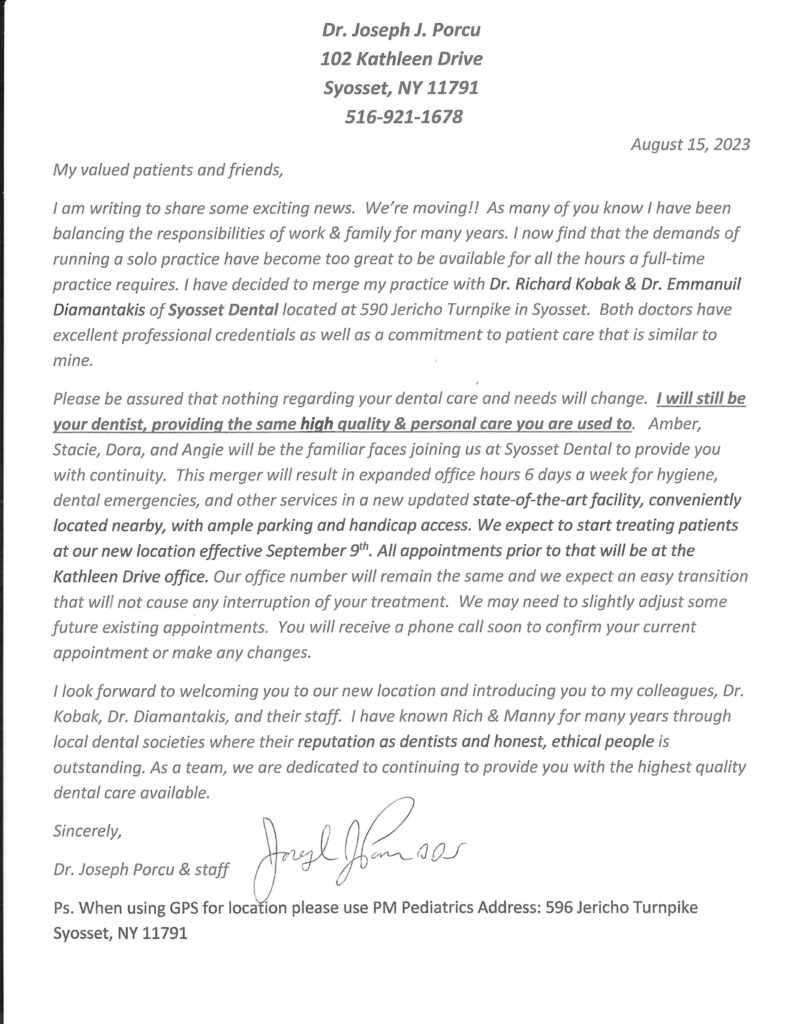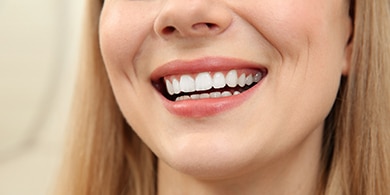 Tooth bonding is a procedure that is done to restore your smile. A resin material (that appears the same color as a tooth) is placed over your tooth and then hardened and bound to the tooth by a special light resulting in a beautiful smile! Tooth bonding can fix a multitude of cosmetic issues and can even restore decayed teeth. Prior to having your teeth bonded, you may want to whiten them because the resin material is matched to your tooth color and it does not change once it’s made. (more…)
Tooth bonding is a procedure that is done to restore your smile. A resin material (that appears the same color as a tooth) is placed over your tooth and then hardened and bound to the tooth by a special light resulting in a beautiful smile! Tooth bonding can fix a multitude of cosmetic issues and can even restore decayed teeth. Prior to having your teeth bonded, you may want to whiten them because the resin material is matched to your tooth color and it does not change once it’s made. (more…)
How Often Do You Brush Your Teeth When You’re Sick?
 This time of year is notorious for illnesses from the common cold to the influenza virus. In fact, the Centers for Disease Control (CDC) and Prevention officially refer to this time of year as “the flu season,” and this year it started even earlier than usual. When you’re afflicted with influenza-like symptoms, such as fever, bodyaches, coughing, and many more, rising out of bed can seem like an Olympian’s challenge. Accomplishing routine daily tasks once you’ve risen out of bed, including brushing and flossing your teeth, can often prove impossible. However, if you are still able to rise to use the restroom, you still have opportunities to care for your dental health. Syosset dentist, Dr. Richard Kobak, explains why you should take advantage of those opportunities every time they arise to help protect your dental health while you’re sick.
This time of year is notorious for illnesses from the common cold to the influenza virus. In fact, the Centers for Disease Control (CDC) and Prevention officially refer to this time of year as “the flu season,” and this year it started even earlier than usual. When you’re afflicted with influenza-like symptoms, such as fever, bodyaches, coughing, and many more, rising out of bed can seem like an Olympian’s challenge. Accomplishing routine daily tasks once you’ve risen out of bed, including brushing and flossing your teeth, can often prove impossible. However, if you are still able to rise to use the restroom, you still have opportunities to care for your dental health. Syosset dentist, Dr. Richard Kobak, explains why you should take advantage of those opportunities every time they arise to help protect your dental health while you’re sick.
While You’re Away…
Even when you’re healthy, bacteria grow and collect inside your mouth to form the sticky biofilm known as plaque. Many of these oral bacteria are the source of destructive oral health issues, including tooth decay and gum disease. Brushing and flossing your teeth helps control plaque buildup and inhibit bacterial gathering, reducing your risk of developing oral health issues. When you’re sick with the cold, flu, or any other systemic illness, bacteria thrive under your distracted immune system, increasing bacteria’s potency and ability to proliferate. You may not feel like brushing your teeth when you’re sick, but if you neglect to, then bacteria and plaque will increase faster than normal, and your oral health will face a greater risk than normal, and in much less time. (more…)
Prevent Stress from Diluting Your Holiday Joy
 Recently, we wrote about the devastating effects of stress on your oral health. While elevated stress levels have long been associated with a higher risk of certain illnesses, the damage that stress causes your teeth and gums is often more subtle and less-often discussed. Bruxism (the habit of teeth-grinding), TMJ disorder, and excessive tooth wear and damage can all result from prolonged stress. As the holiday season draws near, tension and anxiety may become much more prevalent in your daily life than normal. To help prevent stress from diluting your holiday joy, Syosset dentist Dr. RichardKobak offers these tips for beating back stress.
Recently, we wrote about the devastating effects of stress on your oral health. While elevated stress levels have long been associated with a higher risk of certain illnesses, the damage that stress causes your teeth and gums is often more subtle and less-often discussed. Bruxism (the habit of teeth-grinding), TMJ disorder, and excessive tooth wear and damage can all result from prolonged stress. As the holiday season draws near, tension and anxiety may become much more prevalent in your daily life than normal. To help prevent stress from diluting your holiday joy, Syosset dentist Dr. RichardKobak offers these tips for beating back stress.
Tips for Stress-Free Holidays
Be reasonable—Tradition plays a major role in most families’ holiday celebrations. While traditions are often sacred, the truth is that families change and grow, and struggling to make your Christmas exactly as the last one can create a ton of unnecessary stress. For instance, if your grown children cannot visit for the holidays, find innovative ways to celebrate together, such as video conferencing or swapping photos online. If you remain flexible, then sudden changes or shifts in your plans will not devastate your tranquility. (more…)
Syosset Dentist Explains the Three Mechanisms of Tooth Staining
 Even if you’ve never needed corrective dental work, chances are that at some point you were, or will be, disappointed with the color of your teeth. In fact, whiter teeth are still among the most commonly requested cosmetic dental procedures today. Like all aspects of your health, however, prevention is the best cure for a less-than-brilliant smile. To help you understand tooth staining, and thereby take better measures to prevent it, your Syosset dentist Dr. Richard Kobak explains the three mechanisms by which food can leave its lasting impression on your teeth.
Even if you’ve never needed corrective dental work, chances are that at some point you were, or will be, disappointed with the color of your teeth. In fact, whiter teeth are still among the most commonly requested cosmetic dental procedures today. Like all aspects of your health, however, prevention is the best cure for a less-than-brilliant smile. To help you understand tooth staining, and thereby take better measures to prevent it, your Syosset dentist Dr. Richard Kobak explains the three mechanisms by which food can leave its lasting impression on your teeth.
How Food Stains Teeth
Pigment
The first, and perhaps the most obvious, method that food uses to stain your teeth is the color of your food itself. Strongly pigmented foods are more likely to share their pigment with your teeth. Your food and beverages attribute their color to molecules called chromogens. These molecules are intensely pigmented and have a strong tendency to latch onto your tooth enamel. (more…)
How Will Your Teeth Fare Against the Thanksgiving Onslaught?
 As children, few spontaneous outbursts could bring us as much joy as a massive impromptu food fight. Plastering a handful of mashed potatoes on your best friend’s face is a form of bonding unmatched by more conventional methods. Typically, however, childhood food fights rarely went unpunished, and cleaning the aftermath was nowhere near as fun. Although most of us have outgrown our food-fighting days, most of us do not realize that there is another food fight going on in our mouths every day. Our meals are harmless, for the most part, but like children scooping up piles of fries and other sorts of food, there are little microorganisms in your mouth that turn harmless nutrition into dangerous weapons. Syosset dentist Dr. Richard Kobak explains how oral bacteria turn your food against your teeth, and why your teeth need extra protection during the Thanksgiving feast.
As children, few spontaneous outbursts could bring us as much joy as a massive impromptu food fight. Plastering a handful of mashed potatoes on your best friend’s face is a form of bonding unmatched by more conventional methods. Typically, however, childhood food fights rarely went unpunished, and cleaning the aftermath was nowhere near as fun. Although most of us have outgrown our food-fighting days, most of us do not realize that there is another food fight going on in our mouths every day. Our meals are harmless, for the most part, but like children scooping up piles of fries and other sorts of food, there are little microorganisms in your mouth that turn harmless nutrition into dangerous weapons. Syosset dentist Dr. Richard Kobak explains how oral bacteria turn your food against your teeth, and why your teeth need extra protection during the Thanksgiving feast.
From Food to Tooth Decay
Natural food is not intended to rot your teeth, and contrary to popular belief, oral health issues, like tooth decay and gum disease, are not natural, inevitable occurrences. Tooth decay, for instance, occurs when oral bacteria convert sugar and carbs into acid, which erodes your tooth enamel and renders your tooth defenseless against bacteria and decay. Your mouth’s defenses (i.e., tooth enamel and saliva) should be enough to neutralize this acid production, maintaining a healthy and balanced oral atmosphere. However, when we began refining sugar, we changed the equation. (more…)
Protect Your Oral Health from Age-Related Gum Recession
 When your gums begin to pull away from your teeth, or recede, there is usually a cause for concern (the condition typically indicates gum disease, or some other dental malady). As we age, however, our gums can lose their grip on our teeth and recede simply due to a lifetime of use. Age-related gum recession may be natural, but regardless of the cause, your receding gums can still complicate your oral health. Syosset dentist, Dr. Richard Kobak, explains how and why you should protect your gums from recession at any age.
When your gums begin to pull away from your teeth, or recede, there is usually a cause for concern (the condition typically indicates gum disease, or some other dental malady). As we age, however, our gums can lose their grip on our teeth and recede simply due to a lifetime of use. Age-related gum recession may be natural, but regardless of the cause, your receding gums can still complicate your oral health. Syosset dentist, Dr. Richard Kobak, explains how and why you should protect your gums from recession at any age.
The Importance of Your Gums
The top part of your tooth, called the crown, is protected from bacteria and food debris by a layer of tooth enamel—the strongest substance that your body produces. The crown, however, is not the only part of your tooth. Your tooth’s roots extend into your gum tissue and continue down to anchor into your jawbone. Your gum tissue, which acts like a gasket in a motor, seals and protects the enamel-less part of your teeth. When your gums recede, the roots of your teeth become exposed and vulnerable to bacterial infection. Also, receding gums provide extra spaces for food debris and dental plaque to settle, increasing the damage caused by the condition. (more…)
Syosset Dentist Explores the Continuing Damage of Gum Disease
 As your eyes are the windows to your soul, so too is your mouth the window to your body. The food you eat, the beverages you consume, and much of the air that you breathe all pass through your mouth before entering your body. There should be little surprise, therefore, to learn that the health issues affecting your mouth can pose a risk to your physical health, as well, if not attended to quickly. To remind you of the importance of maintaining a clean and healthy mouth, Syosset dentist, Dr. Richard Kobak, explains how gum disease can leave its legacy on your systemic health.
As your eyes are the windows to your soul, so too is your mouth the window to your body. The food you eat, the beverages you consume, and much of the air that you breathe all pass through your mouth before entering your body. There should be little surprise, therefore, to learn that the health issues affecting your mouth can pose a risk to your physical health, as well, if not attended to quickly. To remind you of the importance of maintaining a clean and healthy mouth, Syosset dentist, Dr. Richard Kobak, explains how gum disease can leave its legacy on your systemic health.
Gum Disease and the Oral-Systemic Connection
The majority of possible oral health problems, including tooth decay and gum disease, begin with the formation of oral bacteria into dental plaque. As plaque grows, its bacteria grow stronger and more capable of inflicting damage on your teeth and gums. When they accumulate along your gumline, these bacteria release toxins that harm your gum tissue and cause it to separate from your teeth. The destructive power of gum disease stems from the inflammation that these bacteria elicit from your immune system. (more…)
Help Syosset Dental and Island Harvest End Hunger on Long Island!
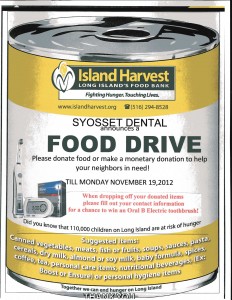 This season, Syosset Dental is working with Island Harvest to collect food for at-risk Long Islanders. You can help by donating canned and packaged goods to our office food drive box by Monday, November 19, 2012. Island Harvest will distribute your donations to one or several local food pantries, soup kitchens, or other food programs in our area. To show our appreciation, your donation will enter you in a drawing for the chance to win a new Oral B electric toothbrush!
This season, Syosset Dental is working with Island Harvest to collect food for at-risk Long Islanders. You can help by donating canned and packaged goods to our office food drive box by Monday, November 19, 2012. Island Harvest will distribute your donations to one or several local food pantries, soup kitchens, or other food programs in our area. To show our appreciation, your donation will enter you in a drawing for the chance to win a new Oral B electric toothbrush!
Helping the Hunger Problem
Did you know that 283,700 Long Islanders are at risk of hunger? Did you know that 110,000 of them are children? In an effort to stamp out hunger, Island Harvest distributes food to more than 570 food pantries, soup kitchens, and other local feeding programs throughout Long Island. Since 1992, we have delivered 71 million pounds of food, supplementing more than 62 million meals. To learn more about Island Harvest, visit their website www.islandharvest.org, or stop by our Syosset dentist office to make a donation.
Join us and Island Harvest to help end hunger and reduce food waste on Long Island by donating today!
Syosset Dentist Explains What an Apple a Day Means for Your Teeth
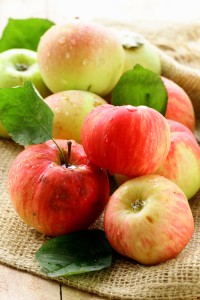 Chances are, there a lot of people who could tell you what an apple a day does for you, according to the old saying. Aside from keeping the doctor away, however, apples have a complicated relationship with your oral health, and possess properties that can be both helpful and harmful to your teeth. Your Syosset dentist, Dr. Richard Kobak, explores what happens to your teeth as you bite into nature’s delight.
Chances are, there a lot of people who could tell you what an apple a day does for you, according to the old saying. Aside from keeping the doctor away, however, apples have a complicated relationship with your oral health, and possess properties that can be both helpful and harmful to your teeth. Your Syosset dentist, Dr. Richard Kobak, explores what happens to your teeth as you bite into nature’s delight.
Apples—Good for Your Teeth
For some people, the words apples and oral health in the same sentence may conjure images of apple skin pieces lodged between their teeth after every bite. While this is certainly an inconvenience, it does not necessarily pose a threat to your oral health, unless ignored. In fact, the fibrous texture of the apple is actually good for your teeth, and acts like nature’s little toothbrush as it helps scrub minor stains from the surfaces of your teeth. The water content in apples also generates saliva, which helps regulate your mouth’s pH level (acid-alkaline balance) and provides minerals to strengthen your tooth enamel. (more…)
Syosset Dentist Explains How Your Sinuses Can Hurt Your Teeth
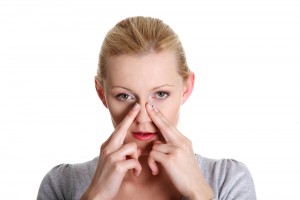 A toothache, or tooth sensitivity, can indicate a number of different dental maladies. Decaying teeth are often sensitive, as well as cracked or broken teeth that leave the pulp exposed. Although small, your teeth can become an incredible hindrance when they are disturbed. In fact, nearly 25% of adults in America admit to having taken time off work to deal with one or more sensitive teeth. However, in some cases, tooth discomfort can occur in spite of a full set of strong and healthy teeth. Syosset dentist Dr. Richard Kobak explores how a sinus infection can mimic the symptoms of damaged or diseased teeth.
A toothache, or tooth sensitivity, can indicate a number of different dental maladies. Decaying teeth are often sensitive, as well as cracked or broken teeth that leave the pulp exposed. Although small, your teeth can become an incredible hindrance when they are disturbed. In fact, nearly 25% of adults in America admit to having taken time off work to deal with one or more sensitive teeth. However, in some cases, tooth discomfort can occur in spite of a full set of strong and healthy teeth. Syosset dentist Dr. Richard Kobak explores how a sinus infection can mimic the symptoms of damaged or diseased teeth.
What are Sinuses, Anyway?
Although the source of much discomfort, especially in the midst of allergies or the cold and flu season, sinuses are little more than hollow tubes in your upper jawbone. These tubes are lined with tissue similar to the membrane that lines the inside of your mouth, and air travels through them every time you inhale through your nose. This lining is subject to infection and inflammation, which leads to the miserable stuffy feeling of sinus infection (sinusitis). (more…)
